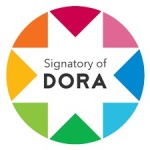Mechanisms for measuring and combating corruption under the policy of good governance - the case of Algeria
Abstract
The size of the phenomenon of corruption in the world is getting worse to the point that its effects become threatening many societies to collapse. But the evidence unequivocal proved that whenever communities and societies achieved a higher level of democracy and transparency, the role of civil society organizations and international organizations increases to fight against corruption; i.e. the higher the governance’s quality, the diminished level of corruption. The phenomenon of corruption in Algeria is a fact which exists since independence and there is no way to deny it. But its size has increased, his circle has widened and his crimes have propagated to the extent that it becomes more dangerous on the state than terrorism’s crimes on the state. This raise was more apparent on the 21st century onset especially with the beginning of development projects. According to several international organizations interested in corruption, Algeria is in the front of the ranking of countries the most corrupted.
Downloads
References
-Manion, Melanie. 1996a. “Corruption by Design: Bribery in Chinese Enterprise Licensing". Journal of Law, Economics, and Organisation 12: 167-195. / - Skidmore, --- Max J. 1996. “Promise and Peril in Combating Corruption: Hong Kong’s ICAC”. Annuals of the American Academy of Political Science and Sociology 547: 118-130.
- Index of Economic Freedom, Wall Street Journal and The Heritage Foundation, Washington, http://www.heritage.org/index/2014.
- http://www.elkhabar.com/ar/economie/380610.html#sthash.wcOawxwc.dpuf
- .http://www.al-fadjr.com/ar/economie/249540.html
- http://www.al-fadjr.com/ar/economie/249540.html.
- www.alarab.co.uk.com
- Dev Kar and Karly Curcio, Illicit Financial Flows from Developing Countries: 2000-2009,January 2011: Report from Global Financial Integrity, USA, 2011, p:40.
-http://www.elkhabar.com/ar/autres/dernieres_nouvelles/375673.html#sthash.uF5biixW.dpuf
- Hubert Coudurier, Le Monde Selon Chirac: Les Coulisses De La Diplomatie Française, Paris: Calmann-Lévy, 1998, p.232
- Abdelhamid Brahimi, Stratégies De Développement Pour L'algérie: Défis et Enjeux, paris: Economica. pp.101-104 1991
- Taieb Hafsi, Entreprise Publique et Politique Industrielle, Stratégie et Management, Auckland; Beyrouth: Paris: Mc Graw-hill, 1984. P, 34
- CMIM, Chantiers De L'atlantique; Crensat-Loire; Krebs; Technip
- Larry Diamond, Institution Of Accountability to Control Endemic Corruption, Was hington, DC. 4 December 2000. http://www.CSIS.org/energy/event 001204 diamond. http
- Rober H. Jackson. Quasi-States: Soverignty, International Retations, and the Third World. Cambridg Studies in international Relations: 12 Cambridje, MA: New York: Cambridje University press, 1990.
- http://www.idsc.gov.eg/Upload/Documents/279/good_govern.pdf
- United Nations Development Programme (UNDP), Governance For Sustainable Human Development: AUND policy Document, pp, 4-5.
- PNUD, Lutte contre la corruption, Note de pratique du PNUD, 2004, p:3, cite web: - - http://www.pogar.org/publications/finances/anticor/undp-ati04f.pdf le 29/03/2010
- United Nations Development Programme (UNDP), Reconceplizing Governance For Sustainable Human Development: Duscussion paper 2 (New York: UNDP, 1997), p.3.
http://www.information-citoyenne.org/IMG/pdf/reflexions_autour_du_concept_de_gouvernance.pdf le 03/04/2010
- Ashour, Ahmed. S. (2006), Combating Corruption: Systemic and Strategic Perspectives, Berrut: POGAR- UNDP.pp.73-79.
Corruption Perceptions Index 2012, http://.www.transparency.org/publication/gcA/download_gcr
- Robert M. Solow, A contribution To the Theory Of Economic Growth, Quarterly Journal Of Economics, Vol.70, n0.1, February 1956, pp.65-94.
- Edward F, Denison and Jean-pierre Pouillier, why Growth Rates Differ: Postwar Experience In Nine western Contries, Washington, DC: Brookings Institution, 1967
سمير التنير، الفقر والفساد في العالم العربي، دار الساقي، الطبعة الاولى، بيروت ، لبنان، 2009، ص13.
محمود عبد الفضيل، الفساد والحكم الصالح في البلاد العربية، بحوث ومناقشات الندوة الفكريةالتي نظمها مركز الوحدة العربية بالتعاون مع المعهد السويدي بالاسكندرية، مركز دراسات الوحدة العربية، الطبعة الثانية، 2006، ص 80.
كريمة بقدي، الفساد السياسي واثره على الاستقرار السياسي في شمال افريقيا، مذكرة ماجستير في العلوم السياسية والعلاقات الدولية، ، غير منشورة، كلية الحقوق والعلوم السياسية، جامعة تلمسان، الجزائر، 2011-2012، ص21
ابن عبد السلام عزالدين عبد العزيز، القواعد الكبرى، دار القلم، دمشق، سوريا، 2000، صص 11-19
محمد الغزالي، الفساد السياسي في المجتمعات العربية والاسلامية، دار المعرفة، الجزائر، 2004، ص52
محمد أحمد درويش، الفساد مصادره،نتائجه، مكافحته، عالم الكاتب، الطبعة الاولى، القاهرة-مصر، 2010، ص68
حمدي عبد العظيم، عولمة الفساد وفساد العولمة، الدار الجامعية، الطبعة الاولى، الاسكندرية، مصر، 2008، ص79
عادل عبد اللطيف، الاصلاح السياسي في الدول العربية في ضوء المعايير الدولية، نودوة حول المشاريع الدولية لمكافحة الفساد والدعوة للاصلاح السياسي والاقتصادي في الافطار العربية، المنظمة العربية لمكافحة الفساد، الطبعة الاولى، بيروت، 2006، ص89
خليل الجاعوني، دراسة احصائية وصفية تحليلية لمؤشرات الفساد المالي والاداري واثرهما في مؤشر التنمية البشرية، دراسة تطبيقية على واقع البلدان العربية، مقال علمي، مجلة جامعة دمشق للعلوم الاقتصادية والقانونية، المجلد 25، العدد الثاني، 2009، ص22.
علي بن محمد، جبهة التحرير بعد بومدين، حقائق ووثائق، دار الامة، الجزائر، 1998
عمر الرزاز، تعزيز الحكم الجيد في منطقة الشرق الاوسط وشمال افريقيا، المنظمة العربية لمكافحة الفساد، بيروت لبنان، ص ص 150-151
فتيحة تالحيث، الفساد الاصلاح المضاد، الجزائر الحرة، 9 نوفمبر، 1998
شعبان فرج، الحكم الراشد كمدخل حديث لترشيد انفاق العام والحد من الفقر دراسة حالة الجزائر 2000-2010، أطروحة دكتوراه غير منشورة، كلية العلوم الاقتصادية وعلوم التسيير، جامعة الجزائر 3، 2011-2012، ص246

This work is licensed under a Creative Commons Attribution-NonCommercial 4.0 International License.















